- Home
- Joel Goldman
Cold Truth Page 3
Cold Truth Read online
Page 3
"My parents hired you, right?"
"Right."
She stepped off the ATV and began unloading the tools, putting them away in the shed without further comment. Mason watched her work, impressed with her economy and intensity. She was of average height, slender but strong enough to sling a shovel, pick, sledgehammer, and posthole digger over her shoulder one at a time like they were Wiffle-ball bats. Finished, she stood in front of him, hands on hips, narrow chin jutting out like a dare, breath a beat above steady. Her face and neck glistened with sweat.
"I didn't kill her, okay," she said.
"Okay," Mason answered.
He guessed that she'd been working since sunup and, judging from the layer of grime she wore, it had been hard, physical work. Still, she hadn't swung the sledgehammer enough times to pound out the rage he saw in her. It was in the knotted muscles of her shoulders and neck. It was in the impatient tapping of her gloved fingers against her hips. It was in the sharp crease of her eyes as she sized him up.
"We done here?" she asked him.
"Just a few more things."
"What?"
"Your parents are paying me, but you're my client. Do you want me to represent you?"
"Do I need a lawyer?"
"The cops took your fingerprints and they took samples from your clothes and hair. Maybe they're doing that with all of Dr. Gina's patients. But if they find your fingerprints, your hair, or your fibers on the broken window or the body and you don't have a good explanation or an alibi for the night of the murder, you need a lawyer."
Jordan yanked off her work gloves and stuffed them in her belt. "Fine. I need a lawyer. What else?"
"Are you always this much fun?"
She cocked her head, split a small grin, and dialed back her force field a notch. "Yeah," she said. "I'm a barrel of laughs."
"Where were you Monday night around ten o'clock?"
"Here. In my room. Lights-out is at ten."
"Does Terry do a bed check?"
"Whenever he gets a chance," she answered.
Mason filed away her double entendre for future reference. "When was the last time you saw Gina Davenport?"
Jordan straightened, her elbows stiff against her sides. "My last appointment was Friday, before the holiday. You can check her appointment book."
"The cops will do that for me. How did you get to her office?"
"Terry usually took me. Once in a while, Centurion would do it."
"What about your family?"
"What about them?"
"They ever take you?"
Jordan folded her arms in front of her. "Look, let's not talk about my family unless it's about where they were at ten o'clock on Monday night."
Mason couldn't tell if she was just venting or was serious. "Why should I ask your parents if they have an alibi?"
"Forget it," she said. "My brother and my parents have alibis for everything."
"I didn't know you had a brother."
"Oh, yes. Brother Trent, the fair-haired son. He's the real master of the alibi. Be sure to ask him."
A stream of kids poured out the front door of the house hurrying to their next projects, slapping hands and touching fists with one another like a football team taking the field. Two girls, one black, one Hispanic, walked past them into the machine shed, giving Jordan a cautious "Hey, girl" while pretending not to notice Mason. They emerged with a chain saw and heavy-duty shears. Jordan looked past Mason to the veranda, nodding her head, Mason following her gaze, Centurion and Terry Nix responding with friendly waves, Jordan putting on her work gloves.
"Time to get back to work?" he asked her.
"Yeah."
"You have a car?"
"Not here," she said, shaking her head. "We're supposed to stay focused and disciplined. Terry says we don't need a car to do that."
"Focused and disciplined," Mason said. "Sounds familiar. What if I wanted to take you back to my office to work on your case, maybe pick up a pizza and beer on the way."
Jordan lowered her head, as if Centurion and Terry could read her lips at a distance. "We can't be focused and disciplined all the time, can we?"
"Centurion and Terry can, but we can't," Mason answered. "I'll pick you up tomorrow afternoon around five. One last thing."
"What's that?"
"No more talking to the cops without me. Got it?"
"Got it."
Chapter 4
Mason kept his first meeting with Jordan brief, just to get a sense of her until they could spend serious time talking at his office. She said enough to worry him, claiming that she had an alibi but admitting she needed a lawyer. Telling him when she'd had her last appointment with Dr. Gina, but not when she had last seen her therapist. Implying that Terry wasn't the good shepherd after all. Tossing darts at her parents and brother.
Mason knew better than to expect a client to tell him everything. He even knew better than to expect a client to tell him the truth. He was satisfied when a client gave him something to work with. Jordan had done that, but he would need a lot more if she was charged with Davenport's murder.
Mason believed in first impressions, even if they were mixed, muddled, and messy. That's how Claire had described life to him since he was a kid. She was an unsentimental realist with a compassionate streak, a hell-raiser and stickler for the rule of law, proving her point.
Jordan fit the mold. She was tough, strong, and mad at the world, yet still just wanted to have fun. Sanctuary reined her in with its focused discipline. She was free to go but was stuck working in the fields, dependent on others to take her anywhere. Though she was strong enough to throw someone through a window, he didn't know if she was tough enough or mad enough.
Mason put the top up on the TR-6 for the drive back to town, taking a pass on neck burn. His cell phone rang as he climbed the ramp onto I-70. The TR-6 was the perfect car as far as Mason was concerned. Its perfection lay in the heart-stopping jolt it gave him the first time he saw one. Never a car guy, he was possessed nonetheless, happily overlooking shortcomings like the wind-tunnel noise level. He shouted hello into the hands-free microphone.
"Hey, Boss," Mickey shouted back. "You coming in today?"
"Later. I'm stopping at the Cable Depot first. I want to talk with the Hacketts and have a look at Dr. Gina's office. What's up?"
"We got the check in the Coyle case. Do you want me to call Mad Max and have him come in and endorse it?"
Max Coyle was a former professional football player turned professional wrestler until one too many headlocks forced him into a career in sports broadcasting. He wrestled under the name of Mad Max, a moniker he kept behind the microphone. Along the way, he held on to enough money to make a difference, putting it in the hands of David Evans, a lawyer and investment advisor who performed reverse alchemy, turning gold into garbage. Mason had taken the case, convincing the advisor to pay Max back, plus enough to cover Mason's fee.
Max's settlement check was made out to him and Mason, requiring both to endorse it. Mason would deposit the check in his account and write another check to Max after deducting his fee. It was a simple way of making certain the client and the lawyer both got paid.
"Don't bother. I'll swing by the office, pick up the check, find him at the radio station, and have him sign it."
"You get all the good ideas," Mickey said.
"It's all about focused discipline," Mason told him.
The Cable Depot, known by locals just as the Depot, was far from being Kansas City's tallest building, but its location on a bluff on the northwestern edge of downtown elevated it above much of its brick and mortar competition. It was eight stories of Kansas City history, rich enough in gothic architectural detail to be placed on the National Register of Historical Landmarks. That designation, and the tax breaks it carried, made it a good investment for Arthur and Carol Hackett when they bought it twenty years ago. Once renovated, it became an anchor in the redevelopment of the West Side and a favorite of those who lived in Quality Hill a few bl
ocks south.
KWIN's studios and offices were on the eighth floor, space shared with only one other tenant, Gina Davenport, Ph.D. A mix of professionals and a deli on the first floor populated the rest of the building. Mason studied the building directory, surprised at finding one name on the list. David Evans's office was on the fourth floor. Mason pulled Evans's settlement check from his pocket. The address was a post office box, not the Cable Depot.
When Mason filed Max's lawsuit against Evans a year earlier, Evans's office had been on the twentieth floor of a high-rent high-rise on the Country Club Plaza. Though Evans was a lawyer, his malpractice insurance didn't cover Max Coyle's claim since Max sued Evans for cheating him out of his money, not for being a lousy lawyer. Evans came out of his own pocket for $650,000 or borrowed the money from someone else's pocket. Mason figured that hit knocked Evans from the twentieth floor on 47th Street to the fourth floor on 6th Street. Life is hard, Mason said to himself.
Arthur and Carol Hackett were waiting in Arthur's office as Mason walked in.
"What did she say?" Arthur asked, settling in behind his desk.
"Did you ask her if she did it?" Carol asked, their questions stumbling over one another.
"She said she was innocent," Mason said, answering both of their questions.
Arthur motioned Mason to take the chair across from Carol as he shuffled a stack of papers.
"She's our daughter," Carol said with more regret than grief.
"I understand," Mason said, not certain whether he did.
The Hacketts were well educated, well dressed, and buoyant with good fortune, none of which insulated them from the turmoil rocking their family. Mason had learned that many rich people assumed that their success inoculated their kids from bad judgment and bad genes, while poor people more often were resigned to trouble when it found their kids, having spent their whole lives waiting for it. Rich clients expected him to fix everything. Poor ones prayed for a lucky break. Mason knew that bucks and breaks weren't evenly distributed, though a parent's suffering was. Except the Hacketts were more annoyed than anguished.
"Is she going to be arrested?" Arthur asked. He took off his half-glasses, leaned back in his chair, the man in charge.
"I don't know. I'll talk to the detective running the investigation and find out what's going on."
"What else did she say?" Carol asked.
"Mrs. Hackett," Mason began. "This gets a little complicated. You and your husband are paying my fees, but your daughter is my client. Everything she tells me is privileged. If I tell you, even though you are her mother, she could lose that privilege."
"Carol," Arthur interrupted, "let Mason do his job. Jordan didn't kill Gina Davenport, so that's the end of it."
"It may not be that easy," Mason said. "Her fingerprints will be found in Dr. Gina's office. That makes sense since she was a patient. The same goes for her hair and clothing fibers. We could have a problem if any are found on the broken window or the body."
"If they are, they are," Carol said, concentrating on her manicure.
Arthur said, "Our son, Trent, manages the building for us. He told me that Gina had called in a repair request for that window last Friday. Apparently one of her patients went a little crazy and threw something against the window and cracked it. Since it was a holiday weekend, Trent figured he could wait until this week to fix it."
"Did Gina say who the patient was?"
Arthur shook his head. "Said it was privileged, just like you. It didn't matter anyway. The window still needed to be replaced. I told Trent he shouldn't have waited. He feels terrible. Plus, my insurance company says Gina's husband will probably sue us."
"Who's her husband?" Mason asked.
"Robert Davenport. He teaches painting at the Kansas City Art Institute."
"They have any children?"
Carol said, "They had a daughter, but she died a couple of years ago."
"What happened?" Mason asked.
"It was a real tragedy," Arthur said. "The girl jumped out of a window and killed herself. I give Gina credit, though. A lot of mothers would have tried to keep it quiet, but she went public, talking about it on the air. I guess it was her way of grieving. The really crazy thing is that's when Gina's show took off. Her daughter kills herself and Gina goes into national syndication. Now Gina dies in almost the same way."
Mason caught his breath calculating the odds. "What was her daughter's name?"
Carol whispered, "Emily."
Mason hesitated at his next question, betting another long shot on the answer. "Where did it happen?"
"Sanctuary," Carol said as she left her chair and her husband's office.
"Carol bottles everything up inside," Arthur explained. "It's not that she doesn't care. She does, but sometimes she comes across, well, I don't know."
"Like she'd rather be anyplace else?" Mason asked.
"Like that," Arthur agreed. "We both feel guilty that Jordan can't live at home and we're not thrilled that she's at Sanctuary after what happened to Emily Davenport."
"Why not find someplace else for Jordan to live?"
"You ever try to make a twenty-one-year-old girl do anything she didn't want to do?"
"I can't even get my dog to bark," Mason answered. "When was the last time you saw Jordan before Monday night?"
Arthur paused, checking his mental calendar. "Last Friday, she stopped in before her appointment with Gina. I only saw her for a minute."
"Do you know how she got here?"
"Someone gave her a ride, I guess. I didn't ask. Is that important?"
Mason shrugged. "Probably not."
"Where were you and your wife Monday night?" Mason asked the question as if it was no more important that asking for the time, hoping Arthur would be as casual in his response.
"Home," he said, taking no offense at the question.
"How about Trent? Where was he?"
"That I don't know," Arthur said. "He had dinner with us at the Club. Carol and I were home by eight. I don't know where Trent went."
"Do Trent and Jordan get along?"
Arthur shook his head back and forth. "Trent is five years older. The age difference was a problem. They both thought the other was more trouble than they were worth. You'd think brothers and sisters would get along better."
Mason switched gears. "How does Gina's death affect your station?"
"It's a killer," Arthur said, unaware of his poor analogy. "Her show generated a third of our revenue. You don't replace that with a delayed broadcast of Rush Limbaugh. Fortunately, we have insurance on all of our air personalities. I hope that gets us by until we find another superstar."
"I'd like to get a look at Gina's office," Mason said.
"The police just took down the crime-scene tape this morning. Talk to Trent. His office is on the first floor. He'll give you a key."
Mason found Max Coyle in the station's break room polishing off a LaMar's doughnut. Max gave new meaning to being huge. Centurion Johnson was a big man, but Max was part man, part mastodon. He was six-eight, and Mason guessed he weighed at least 375 pounds. Mason saw Max wrestle once on a cable broadcast. He moved well for a big man, especially when he bounced his opponents off the rope before pile-driving them into the canvas.
He was sitting with a woman smoking a cigarette directly beneath the Smoke Free Environment sign on the wall. She had a thin face and figure that worked to give her a harsh attractiveness. She reminded Mason of something bright and sharp that would cut you if you grabbed it the wrong way.
"Hey, Lou," Max said. "Mickey called and told me you got the check. Lemme see it." Max wiped his hands on his pants and clapped them together with Christmas morning excitement. Mason handed him the check. "Ain't that sweet," Max said. "Gimme your pen so I can endorse it."
The woman stubbed out her cigarette and said, "I'm Paula Sutton and you're Lou Mason. Max is short on manners."
"Max is easily distracted by doughnuts and money," Mason said.
&
nbsp; "I hear the Hacketts hired you to represent Jordan."
Mason ignored her comment. "You do the morning show, don't you?"
"Are you a long-time listener and first-time caller?"
"Neither. I saw your name on the program guide in the lobby."
"I do kind of an edgy, current events, call-in-andblast-everybody kind of show. Give me a try. You may like me. Although the only thing my callers want to talk about at the moment is Gina Davenport doing a header from eight flights up."
"Probably spawn a whole new culture of conspiracy," Mason said. "I gather the two of you weren't close?"
"Couldn't stand the bitch," Paula said. "She was a phony that ducked under her morality bar like she was doing the limbo. Don't get me wrong. I didn't want her dead. I just wanted her ratings book." She checked the wall clock. "Three o'clock. I've got to tape some promos. Nice to meet you and don't forget to tune in."
"Paula's not so bad," Max said after she left. "Her ratings suck and she may get canceled. That's enough to put anyone on the rag."
"How are your ratings?"
"Primo, man. Number one in my time-slot, number two at the station."
"Gina was number one?" Mason asked.
"Not even a contest."
"Get this," Mason said. "David Evans is your neighbor. He's got an office on the fourth floor. Be nice when you see him in the elevator."
"Already saw the little prick."
"How did he end up down here? I would have thought he would want to stay away from you." "I'm sure he does now, especially since his other
KWIN client is gone."
"What other KWIN client?"
"Gina Davenport."
"Get out!" Mason said. "Evans was managing Gina's money too?"
"More than that. He was her lawyer and he managed her money. Made my account look like chump change."
"How did you know?"
"The asshole told me. It was part of his sales pitch. Gina must have put him on to me. He said he was managing the charitable foundation Gina set up after her daughter killed herself."
"Emily's Fund?" Mason asked.
"Right. That's it. Something like twenty million bucks."
"Where did she get that kind of money?"

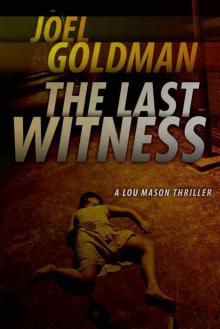 The last witness lm-2
The last witness lm-2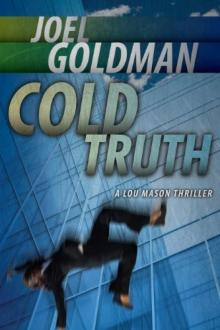 Cold Truth
Cold Truth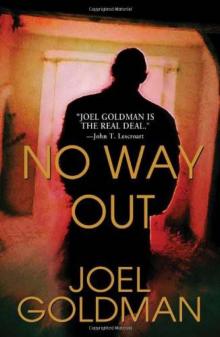 No Way Out (2010)
No Way Out (2010)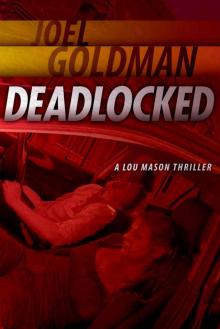 Deadlocked (Lou Mason Thrillers)
Deadlocked (Lou Mason Thrillers)![[Lou Mason 01.0] Motion to Kill Read online](http://i1.bookreadfree.com/i1/03/24/lou_mason_01_0_motion_to_kill_preview.jpg) [Lou Mason 01.0] Motion to Kill
[Lou Mason 01.0] Motion to Kill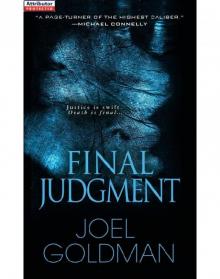 Final Judgment
Final Judgment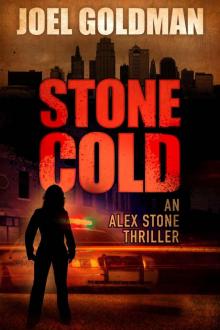 Stone Cold
Stone Cold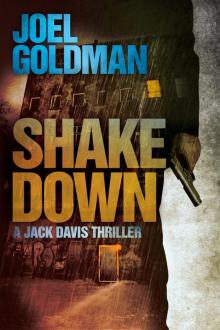 Shakedown
Shakedown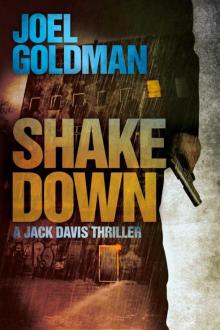 Shakedown jd-1
Shakedown jd-1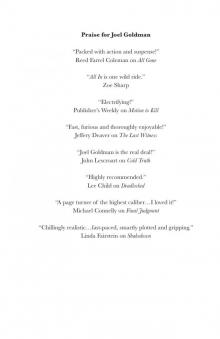 All Gone
All Gone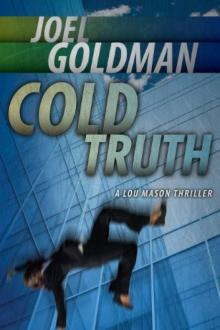 Cold truth lm-3
Cold truth lm-3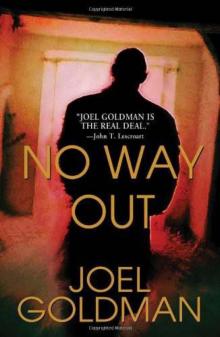 No way out jd-2
No way out jd-2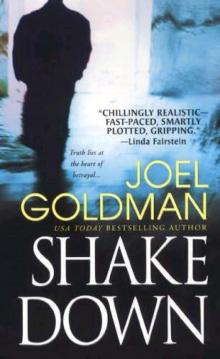 Jack Davis Mystery - 01 - Shakedown
Jack Davis Mystery - 01 - Shakedown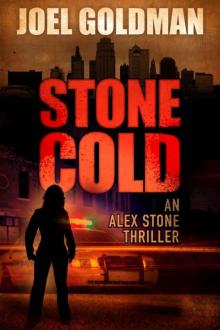 Stone Cold as-1
Stone Cold as-1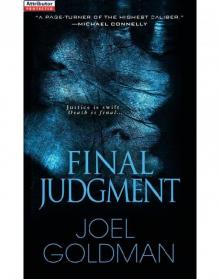 Final judgment lm-5
Final judgment lm-5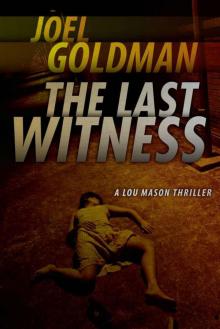 Lou Mason Mystery - 02 - The Last Witness
Lou Mason Mystery - 02 - The Last Witness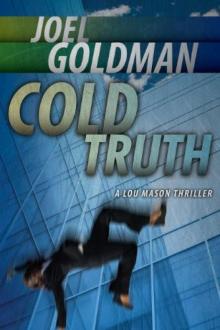 Lou Mason Mystery 03-Cold Truth
Lou Mason Mystery 03-Cold Truth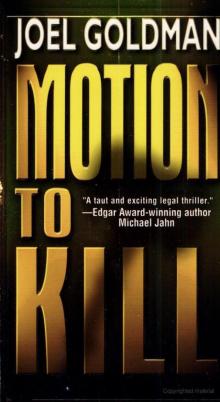 Motion to Kill
Motion to Kill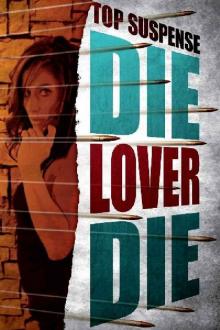 Die, Lover, Die!
Die, Lover, Die!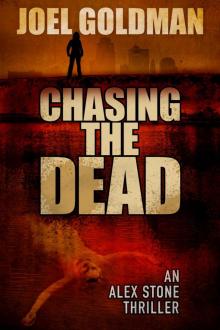 Chasing The Dead (An Alex Stone Thriller)
Chasing The Dead (An Alex Stone Thriller)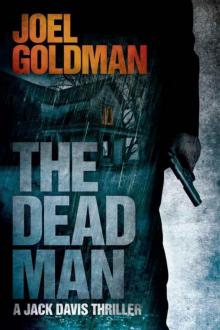 The Dead Man
The Dead Man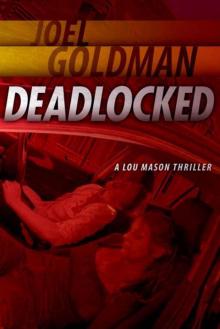 Deadlocked lm-4
Deadlocked lm-4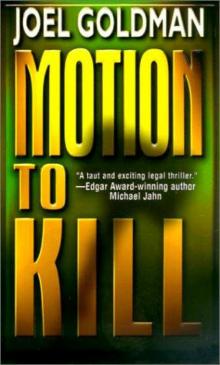 Lou Mason Mystery - 01 - Motion to Kill
Lou Mason Mystery - 01 - Motion to Kill Die, lover, die
Die, lover, die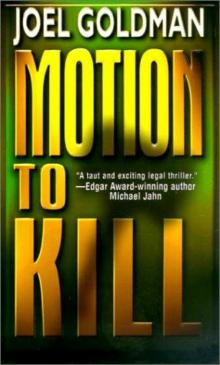 Motion to Kill lm-1
Motion to Kill lm-1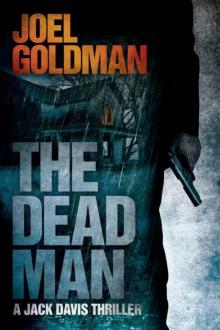 The Dead Man jd-3
The Dead Man jd-3